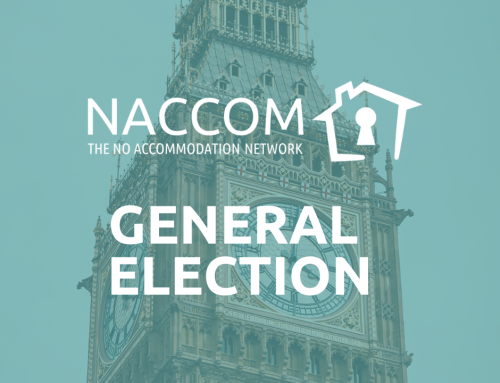On Thursday 14th December at 1.30pm, Westminster Hall will hold a debate on the Twelfth Report of the Home Affairs Committee on Asylum Accommodation and the Government Response.
Background to the debate
The Home Affairs Committee (HASC) published a report on Asylum Accommodation in January 2017. It made several key recommendations, summarised below:
- improved capacity for speedier and more accurate decision making within the Home Office;
- improved support for residents, better standards of accommodation and more transparency around inspections;
- more resource and responsibility to be available to local authorities;
- increased funding for regional Strategic Migration Partnerships and consultation on their role;
- more transparency around the numbers of asylum seekers in temporary accommodation;
- replication of the Syrian Vulnerable Persons Resettlement Programme (VPRS);
- increased length of time for refugees to move on from asylum accommodation;
- introduction of a service along the lines of the Refugee Integration and Employment Service;
- publication of a further review of COMPASS to determine if expected savings have been made.
The Government’s response (published in November) can be found here. Whilst we welcome the Government’s commitment in the response to ‘deliver a sustainable, efficient and high quality end-to-end asylum accommodation and support system which works for all parties, and which effectively safeguards the vulnerable’, responses to many of the concerns raised in the HASC report were lacking in detail and highly disappointing. Key areas of disagreement included; the use of large HMOs and policies around room sharing, who should be responsible to conduct inspections of asylum accommodation, the replication of the VPRS, and the need for a longer move-on period.
Key concerns and questions around the move on period
Calls for an extension to the move on period have been made repeatedly over the last year, not only in the HASC report but also by the APPG on Refugees, and most recently at Sanctuary in Parliament. There is a large body of evidence that without a longer timeframe- and more support – to transition to a new support system and access housing, refugees frequently face destitution and homelessness.
The Government’s response to such calls has been to cite the implementation, and subsequent roll out, of a ‘handover’ pilot which ran from December 2016 until March 2017. Through this, refugees in the North East and Yorkshire and Humberside have been contacted by phone and offered an appointment with the Department of Work and Pensions (DWP) to access services and benefits within the 28-day period.
Information about the pilot has been lacking, with scant details provided on page 18 of the Government response to the HASC report; ‘Those contacted who have accepted the offer of assistance and attended the appointment arranged for them have been able to receive the first payment of any benefit they are entitled to before the 28-day period elapses. The service has also been able to assist with various practical matters, including setting up a temporary Post Office account for the benefits payment to be paid into if the person does not yet have a bank account.’
Whilst we welcome the Government’s attention to the needs of refugees through this pilot, and their recognition that the current system of support is not sufficient, this level of detail is inadequate for a proper assessment of the pilot’s success. There have been calls for more information at various points in the year, such as on the 19th July during the Refugees Welcome? debate, but these have not been granted. This lack of transparency undermines the pilot’s credibility.
In order to better assess the findings, we call on the Government to make public both the number of participants that successfully accessed mainstream support within the 28-day period, and what proportion of the pilot’s cohort this represents. We would also welcome insight on what measures will be taken to increase this proportion, as the scheme is rolled out nationwide. With this information in the public domain, it will be easier to understand what has been learnt from the pilot and identify any ongoing support needs for refugees at this critical juncture.
Those who wish to write to their MPs to encourage them to attend the debate and highlight this issue are encouraged to use this template letter to do so. For a briefing to send on with the letter, click here.




